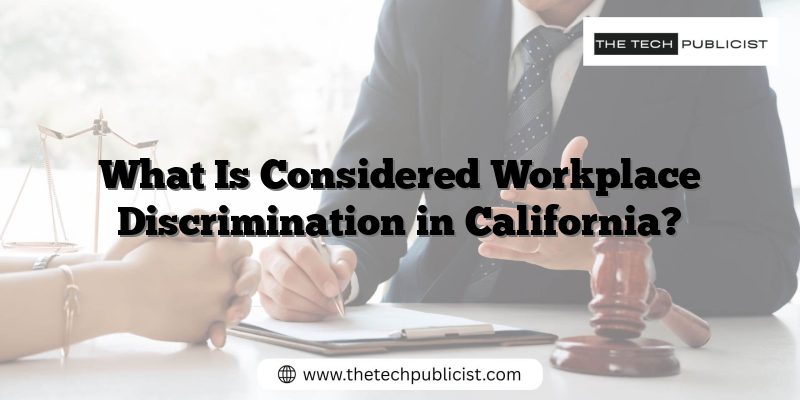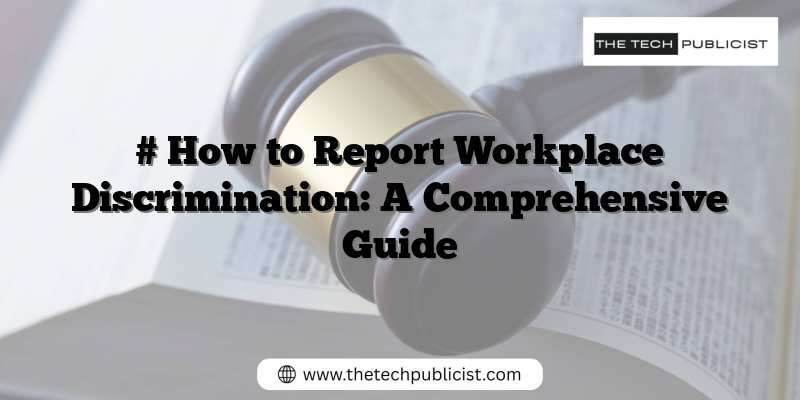Workplace discrimination is a complex legal issue that can affect employees in various ways. In California, the laws governing discrimination are robust and designed to protect workers from unfair treatment based on specific protected characteristics. Understanding what constitutes workplace discrimination is vital for both employees and employers to foster a fair and inclusive work environment.
Types of Workplace Discrimination
Protected Categories
California law protects employees from discrimination based on several characteristics, including:
- Race and Ethnicity: Discrimination based on a person’s racial or ethnic background is illegal.
- Gender and Sexual Orientation: Employees cannot be discriminated against because of their gender identity or sexual orientation.
- Age: Individuals over the age of 40 are protected from age discrimination.
- Disability: This includes both physical and mental disabilities.
- Religion: Employers must accommodate an employee’s religious beliefs unless doing so would cause undue hardship.
Harassment as Discrimination
Harassment in the workplace can also constitute discrimination. This includes unwelcome behaviors or comments based on the protected categories listed above. Harassment may create a hostile work environment, making it essential for employers to take action against such behavior.
The Impact of Discrimination
Psychological and Professional Consequences
Workplace discrimination can lead to various adverse effects on both individuals and the organization. Employees may experience:
- Decreased job satisfaction
- Increased stress and anxiety
- Lower productivity
This, in turn, may affect organizational morale and increase turnover rates.
Legal Consequences for Employers
When workplace discrimination occurs, it can expose employers to significant legal risks. Affected employees have the right to file complaints with state agencies, such as the California Department of Fair Employment and Housing (DFEH), which can lead to investigations and potential lawsuits. Taking proactive measures to reduce discrimination is essential for protecting your organization’s interests.
Addressing Workplace Discrimination
Reporting Procedures
Employees should know how to report discrimination incidents. Most employers are required to have a clear procedure in place. Reporting discrimination as soon as it occurs is crucial for addressing issues effectively.
Seeking Legal Guidance
It’s always wise for employees to consult with legal professionals if they believe they have been discriminated against. Legal advice can provide clarity on rights, potential actions, and remedies available.
What to Know / Key Takeaways
- California law prohibits workplace discrimination based on protected characteristics such as race, gender, and age.
- Harassment can be considered a form of discrimination and must be addressed by employers.
- Psychological impacts of discrimination can affect both employees and organizations.
- Employees should familiarize themselves with reporting procedures and seek legal guidance if needed.
Frequently Asked Questions
What are the main types of discrimination recognized in California?
California recognizes discrimination based on race, gender, age, disability, religion, and sexual orientation as protected categories.
How can an employee report discrimination in the workplace?
Employees should report incidents to their employer’s HR department or follow established company policies. It’s advisable to document incidents carefully.
What should I do if I face retaliation for reporting discrimination?
If you experience retaliation after reporting discrimination, you may want to consult a legal professional to discuss your options.
Can I seek damages for workplace discrimination?
Yes, victims of workplace discrimination may seek damages, including compensation for lost wages and emotional distress, through legal procedures.
Where can I find more information on discrimination laws in California?
You can visit the California Department of Fair Employment and Housing’s official site here for comprehensive information.
Conclusion
Understanding workplace discrimination in California is essential for fostering a fair work environment. If you find yourself experiencing discrimination, consider reaching out to a legal professional to discuss your case and explore your options. Your rights matter, and support is available.

Manali is the founder and editor of The Tech Publicist, a legal-focused blog dedicated to breaking down complex legal topics into plain, practical advice. With a passion for empowering everyday readers, Manali writes about personal rights, property laws, and real-world legal situations that matter. When not decoding the law one article at a time, Manali enjoys diving into tech trends and advocating for accessible legal education.




